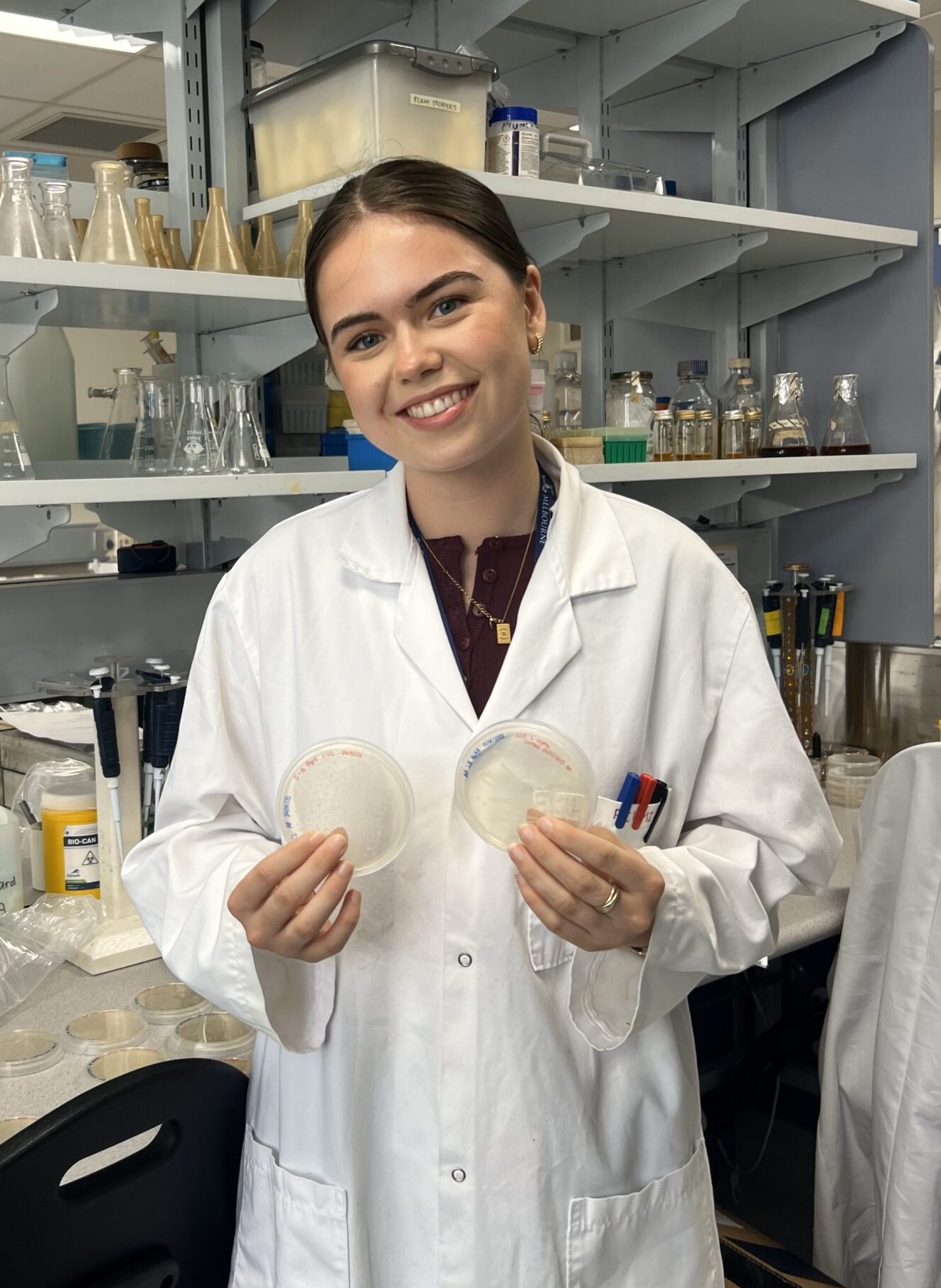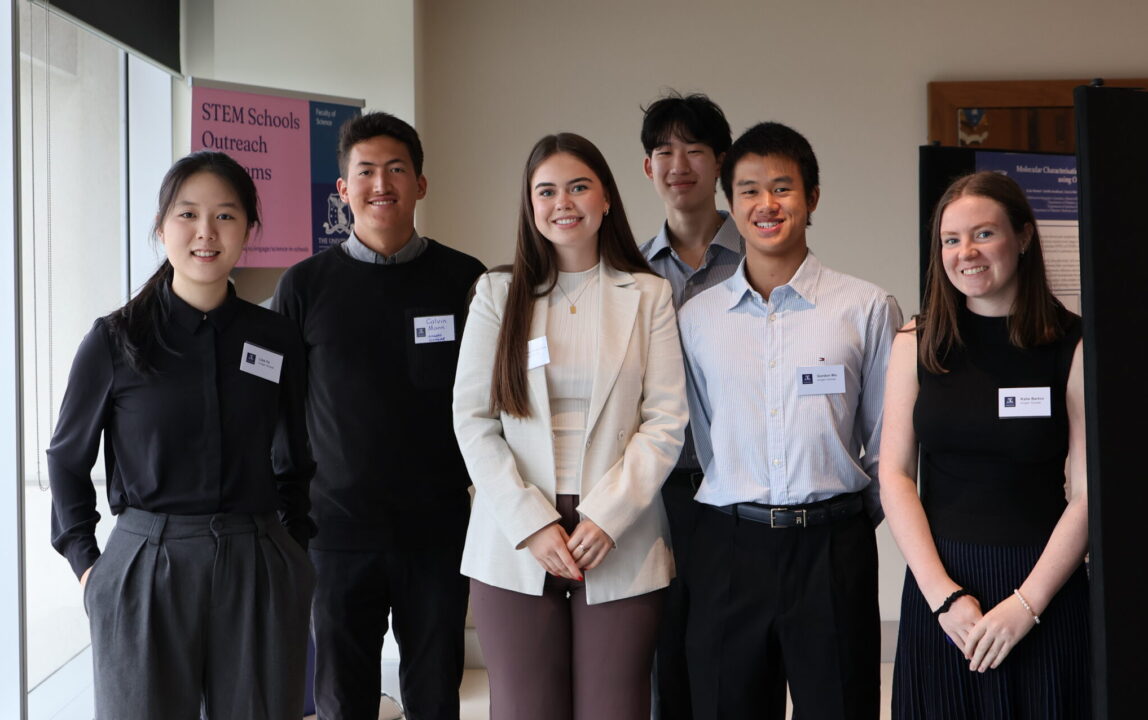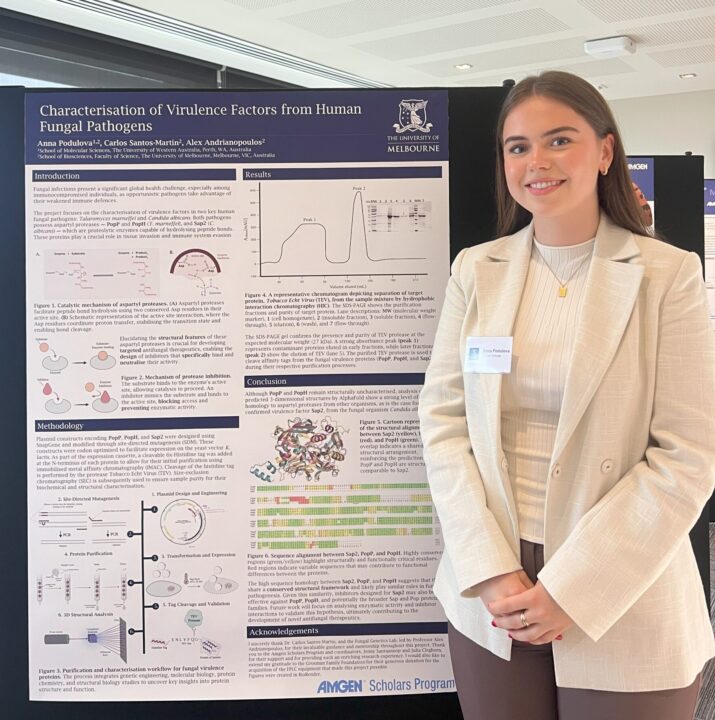
Exploring Mystery Unknowns: One Fungal Pathogen At a Time
Fungal pathogens are not something most people think about on a regular basis. But for Anna Podulova, fungal pathogens have provided a gateway into biomedical research.
“Fungal pathogens are a fascinating and, in my opinion, often an underappreciated threat in both medical and biological fields,” says Podulova, a 2025 Amgen Scholar at the University of Melbourne. “I was drawn to the complexity of their genomes and the challenge of understanding how they adapt, survive, and cause disease. At a time when antifungal resistance is a growing global concern, the chance to contribute to this area, even in a small way, felt both timely and impactful.”
Podulova, a biochemistry major at the University of Western Australia, was especially excited to combine her interests in molecular biology and microbiology with protein chemistry in her Amgen Scholars research. By enabling her to have an immersive and independent research experience, Amgen Scholars, she said, confirmed her interest in biomedical science.
“It also opened my eyes to the possibility of combining clinical work with research, perhaps through a physician-scientist pathway, which is something I hadn’t seriously considered before,” Podulova says. “Beyond the research itself, being part of a global network of like-minded students gave me a real sense of belonging in the scientific community.”
Podulova is also reflective on how her Amgen Scholars research mirrored real science — “unpredictable, challenging, and incredibly rewarding.” She learned how to navigate through experiments not going to plan and unexpected results. Having mentorship through her supervisors, Dr. Carlos Santos Martin and Prof. Alex Andrianopoulos, as well as postdocs, in the Fungal Genetics Laboratory gave her invaluable skills and increased confidence.

Indeed, she says, the mentorship offered through Amgen Scholars made it stand out among other programs. “It was also one of the few opportunities that didn’t require extensive prior lab experience, making it more accessible to students like myself who were eager to learn and grow in a research environment,” Podulova says.
For Podulova, science has always been a way for her to explore unknowns in the world and to then transform that knowledge into meaningful change. Growing up in St. Petersburg, Russia, and then Helsinki, Finland, before moving to Western Australia just prior to high school, Podulova always had a deep curiosity about how things work, with her parents nurturing her scientific interests. “What really pulled me in was the realization that science is full of infinite unknowns. There’s always more to discover, always more to understand, and I’ve constantly been drawn to that sense of mystery,” she says.

As she completes her undergraduate studies, Podulova is now exploring options for an honors or a research master’s. Her goal is to continue working in molecular microbiology or immunology: “I want to continue developing my skills in understanding how microbes cause disease and how we can target them more effectively,” she explains. “In the long term, my goal is to contribute to solving real-world medical challenges through both research and clinical insight.”
Seeing how her Amgen Scholars research connects to real-world science has been a highlight of her journey so far. Her Scholars cohort visited the Australian Synchrotron, allowing her to see firsthand where the fungal proteins she was studying will be structurally analyzed. “I was blown away by how many disciplines intersect there, from crystallography to medical imaging, and how collaborative the environment is,” she says. “It was amazing to think that the early work I was doing at the bench could one day contribute to those kinds of big-picture discoveries.”

